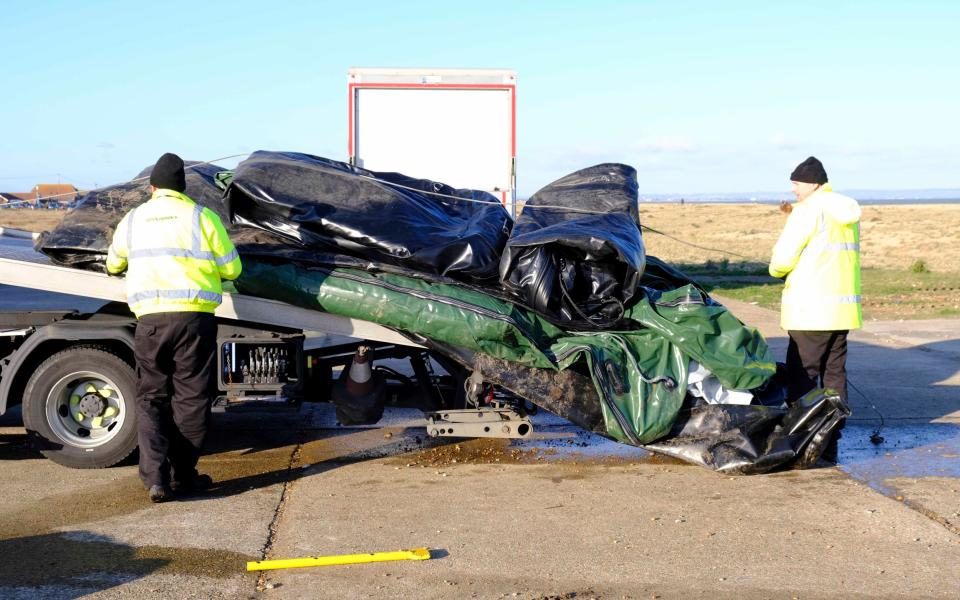Avoid ‘dehumanising’ the dead in Channel tragedy, Priti Patel tells BBC

Priti Patel is to ask the BBC and other media to reconsider the use of “dehumanising” language when referring to migrants.
The Home Secretary made the pledge after being urged by an SNP MP to take action on the BBC’s use of “migrants” for the 27 men, women and children who died when their dinghy capsized off the coast of Calais on Wednesday.
They included 17 men, seven women including one who was pregnant, and three children, one of whom was a young girl.
Brendan O'Hara, the SNP MP, told the House of Commons: "Last night I tuned in to the BBC 10 o'clock news to get the latest on this terrible disaster, and I was absolutely appalled when a presenter informed me that around 30 migrants had drowned.
“Migrants don't drown. People drown. Men, women and children drown.


"So will the Secretary of State join me in asking the BBC News editorial team and any other news outlet thinking of using that term to reflect on their use of such dehumanising language and afford these poor people the respect that they deserve?"
Ms Patel responded: "Even during the Afghan operations and Op Pitting I heard a lot of language that quite frankly seemed to be inappropriate around people who were fleeing. So yes, I will."
Operation Pitting saw the UK airlift from Kabul more than 15,000 people judged to be at serious risk from the Taliban because of their role in helping British forces in Afghanistan.
Yasmin Qureshi, a Labour MP and shadow minister for international development, said on Twitter: "Well it's a good job the Home Secretary has never used inflammatory language at any point in her career."
The UN Refugee Agency was so concerned about the use of language that it commissioned research comparing approaches across Europe.
It found Germany and Sweden overwhelmingly used the terms “refugee” or “asylum seeker”, while Italy and the UK press preferred the word “migrant”. In Spain, the dominant term was “immigrant”.
The UNHCR said these terms had an important impact on the tone of each country’s debate, while there were also different themes that dominated.
Humanitarian themes were more common in Italian coverage than in British, German or Spanish press. Threat themes (such as to the welfare system, or cultural threats) were the most prevalent in Italy, Spain and Britain.
Overall, the Swedish press was the most positive towards refugees and migrants, while coverage in the UK was the most negative and the most polarised.
A BBC spokesman said: “We always think carefully about the language we use and in this report we have made very clear the human cost of this tragedy. It is not always obvious whether those making these crossings already have refugee status, are seeking asylum, looking for work, the stage of their journey, or whether they will try to enter a country illegally. We judge each story on a case-by-case basis.”

 Yahoo News
Yahoo News 
